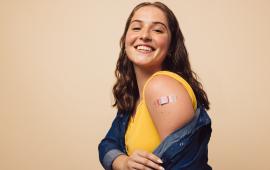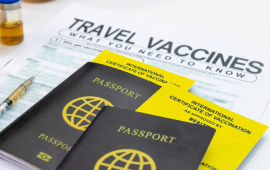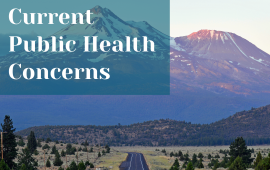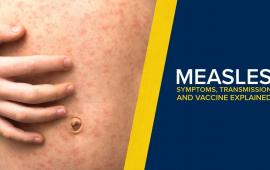The Facts About Measles
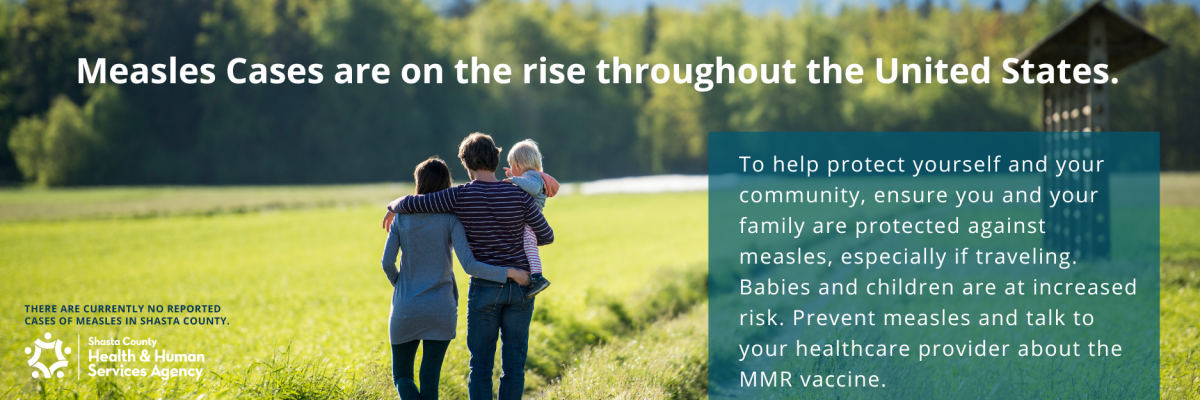
If you suspect you or your child have been exposed to Measles, it's important to take action immediately.
Call your healthcare provider before going to a health clinic to help prevent the further spread of the infection.
As of May 18, 2024, 8 confirmed measles cases have been reported in California in 2024. Follow the link for more information CDC Measles Cases and Outbreaks in 2024
Prevent measles and talk to your healthcare provider about the measles, mumps, and rubella (MMR) vaccine, especially if plan to travel.
What is Measles?
Measles is a highly contagious virus that lives in the nose and throat mucus of an infected person. Measles can be dangerous, especially for babies and young children.
Measles Signs and Symptoms
-
The rash typically appears first on the face, along the hairline, and behind the ears and then affects the rest of the body.
-
High fever (may spike to more than 104°)
-
Cough and runny nose (coryza)
-
Red, watery eyes (conjunctivitis)
-
Infected people are usually contagious from about four days before their rash starts to 4 days afterward.
How is Measles transmitted?
-
Measles can be transmitted by coughing or sneezing with direct contact, or if someone touches an infected surface and then touches their eyes, nose, or mouth, they can become infected.
-
You can also become infected by breathing contaminated air. The measles virus can live for up to two hours in an airspace after an infected person leaves an area.
-
Animals do not get or spread measles.
Who is most likely to get Measles?
-
Babies and Children who are too young for the vaccine or have only received one dose. The Centers for Disease Control and Prevention (CDC) recommends children receive their first dose at 12-15 months and their second dose at 4-6 years.
-
People who are not vaccinated. Teens and adults (with no evidence of immunity) should get vaccinated as soon as possible with their first dose followed by a second dose separated by at least 28 days, at the recommendation of their healthcare provider.
-
Travelers. The vaccine schedule is different if you or your child are traveling internationally. Talk with your healthcare provider.
How to avoid getting the measles?
-
You can reduce your chance of getting infected with the measles by receiving the MMR vaccine (Measles, Mumps, Rubella).
-
All children should be vaccinated against measles.
-
Isolation and quarantining suspected measles cases can help reduce risk of spreading the disease.
Measles Resources:
If you suspect you or your child have been exposed to Measles, it's important to take action immediately.
Call your healthcare provider before going to a health clinic to help prevent the further spread of the infection.
Updated April 30, 2024 | Public Health Communicable Disease Unit

